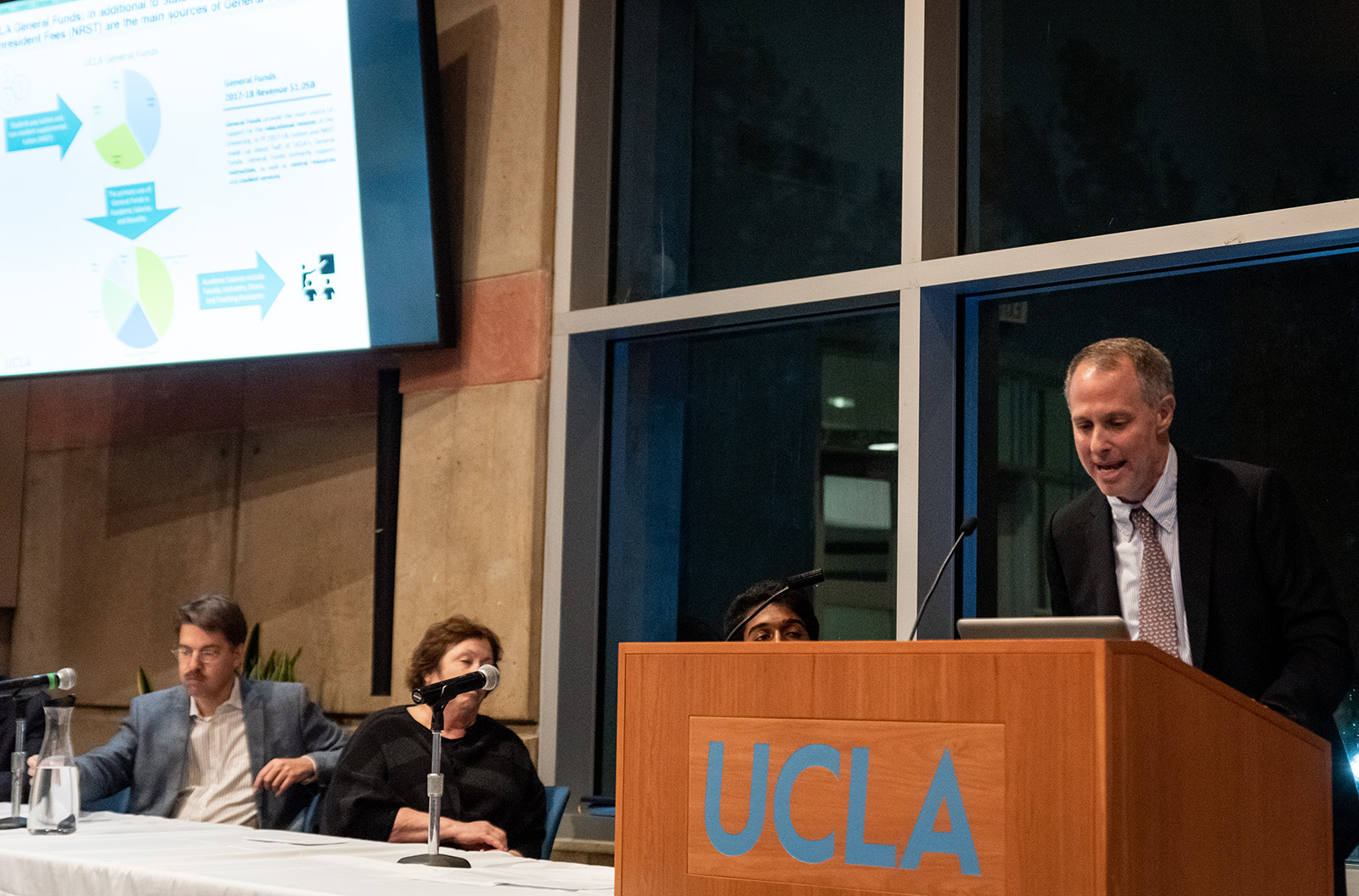UCLA administrators strategized how students should respond to continual decreases in state funding as enrollment increases.
Jeff Roth, associate vice chancellor of Academic Planning and Budget, said at a town hall Wednesday that general core funds per student, which is a combination of tuition fees and state support, has decreased over 30 percent since 2000.
The town hall, hosted by the Undergraduate Students Association Council Office of the External Vice President and the University of California Student Association, explained to students the trends and effects of decreased state funding.
Aidan Arasasingham, the director of legislative affairs in the USAC EVP office and second-year global studies and economics student, said the event aimed to give students the information needed to advocate for their interests in university budgeting.
“With this event, we as students are claiming our seat at the table and are working to influence the ways in which these dollars come back to us,” Arasasingham said.
Roth said undergraduate enrollment at UCLA has increased 28 percent, while available core funds has decreased 16 percent since 2000.
State support for UCLA has declined 24 percent since 2007, Roth said. He added that about 80 percent of the school’s core general funds goes toward teaching salaries and benefits. He said that state funding must increase proportionally to the annual increases in salaries and enrollment.
Julie Sina, chief financial officer for both the UCLA Foundation and the UCLA Investment Company, said UCLA’s $4.2 billion Centennial Campaign has already raised more money than any public university in recent years. She added the money from the campaign helped create supplemental funds along with state funding, as donors have helped fund academic programs, scholarships and buildings.
Amado Castillo, a second-year sociology student, said he was concerned that student advocacy would be ineffective in directing donors’ money.
“The people that donate have a lot of stipulations that come with them, so we can’t really affect where that money goes,” Castillo said.
Gregg Goldman, vice chancellor and chief financial officer of UCLA, said he thinks sustained state support requires student advocacy. He added that efforts such as protesting in Sacramento and writing to Gov. Jerry Brown have stopped tuition hikes in recent years.
Roth also said student advocacy is necessary to prevent state funding from decreasing further and tuition hikes.
“One thing I’ve learned mostly about advocacy is the students’ voices are the ones that the legislatures and state government listen to the most, and these are really important issues,” Roth said.

